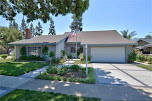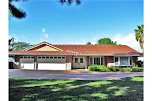Monday, August 18, 2014
A "SUSTAINABLE RECOVERY", LOW FORECLOSURES, RENTS AT THEIR HIGHEST, INVENTORY STRUGGLES...A MIXED BAG FOR THE SUMMER HOUSING MARKET
Last month was
"the" discussion on slumping prices. Really, what's happened is the large gains from 2013, which
are always used in the month over month comparisons, are finally weakening the
pricing "stew", as more months of 2014 are thrown into the mix. Simply put, 2013 saw double digit gains,
and 2014 has been flat to maybe 4%.
Hey, that's not necessarily a bad thing, as 2013's gains were not
sustainable and in fact, another year like it would have seriously hurt the
long term real estate market. The main
reason for the hot market last year, lots of investor flips, willing buyers,
and cheap money, have not entirely disappeared. However, buyers are being more discerning, inventory
constrictions are being keenly felt, and cheap money is no longer a motivating
factor. But what we all want is a
sustainable recovery and we are on our way. Foreclosures are at their lowest level since 2006. There are two main reasons for this; a
growing economy, more job stability, and rising home prices which are allowing
distressed owners who have been under water to exit those properties either
breaking even or a small portion of equity. On the other side of the "prices are too high"
argument, are the quickly rising rents.
In fact, the Orange County Register reported that O.C.'s biggest
complexes hit $1,729 for its average asking rental price. That's barely $100 less than San
Francisco. Potential buyers that
have never done a "Rent vs. Own" comparison, or who think spending
nearly $2,000 a month on rent, (figure $2,400 to 3,500 for a house), receiving
neither a tax break or equity build is financially prudent, really should
reconsider. The direction rents
are traveling, purchasing may make the most sense. At least until interest rates rise considerably. Inventory has definitely grown
consistently the last 2 months.
Nationally, according to the National Association of Realtors, it has
hit 5.5 months, the first time in 2 years. Locally, we are at about half that, but much better than the
first quarter of 2014. In no way
is this market a snap to figure out.
The question you ask yourself should be a personal one: "What are my financial goals and
my personal desire for my housing needs?" Answer that one and take action, before the market becomes
even more unpredictable.
WHAT WERE THE ACTUAL NUMBERS?
Orange County saw its
median price for ALL homes rise to $600,000, up 10% from the same month of
2013. (All figures are from June
of 2014, the last complete month available.) The resale median was $650,000, up 6.6% and condo price was
$400,000, up just 4.2%. The total
number of sales was 3,309, just barely off the 2013 pace (1.2%), showing a
strong second quarter gain in volume.
The break down was as follows:
1) Resale - 1,963 2) Condos
- 893 3) New Homes - 453. Note
that the increase in the median price for a condo was substantially less than
single-family.
MORE HOMES SELLING FOR 1 MILLION-PLUS
The shift was noticeable--- million dollar sales have been
booming relative to the rest of the market. This partially explains the rise in the median price of
homes. Remember, median is not the
average, but rather half--half the homes sold above this mark and half sold
below it. A higher number of homes
over a million, will raise that mark.
It's important to understand this distinguishment because it dispels the
myth that we are in another bubble.
We are not in another bubble.
Already established by many economists is the belief that this slow down
in the number of sales, coupled with growing inventory is a more
"normal" market. But
conversely, million dollar sales have sped up. In fact, sales of homes for $1 million and up rose 11.5%
year over year in O.C. This at a
time when overall sales have declined over 8%. This offers an explanation into numbers that seem contrary
to what market analysts proclaim.
OWNER OCCUPIED VERSUS INVESTMENT--HOW IT BREAKS DOWN
It is interesting to note
when people buy to own and when they buy to invest. It does follow economic times to a tee. from 2003 through 2007, the range of
people who owned to occupy was between 60% to 67%. When the housing bust came along and financing tightened,
and prices plummeted, that occupied statistic rose to 73% from 2008 through
20112. Investors from 2003 to 2007
were at a high of 21% to 28%.
Likewise with the bubble burst the investor purchase from 2008 to 2010
dropped to 17%. Currently, 2013
saw the owner occupied stat at 67% and the investor hovering from 20% to
27%. It is an encouraging footnote
that despite any market turbulence, there remains a strong foothold for real
estate investment as a pathway to building wealth. Good luck to you all this next month in charting your
financial and real estate course for the future.
Subscribe to:
Comments (Atom)















































